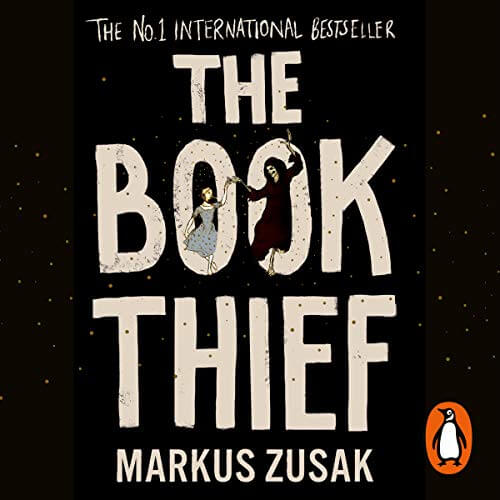The Book Thief by Markus Zusak Audiobook Review
The Book Thief is an exceptionally crafted novel, narrated by Allan Corduner, set in Germany throughout World War 2. It depicts the life of Liesel Meminger, a girl who strives to learn how to check out amidst the obstacles of residing in Nazi Germany from 1939 to 1943. With Death working as the storyteller distinctly and movingly, the book looks into styles of mortality, humanity, and the convenience that originated from books.
Liesel is thrust into a new home on Himmel Street after being sent away from her mom who might not offer her. She struggles to adapt to her foster parents Hans and Rosa Hubermann whilst still grieving the loss of her sibling brother. In a collection of books due to be incinerated, Liesel discovers ‘The Grave Digger’s Handbook’ and covertly teaches herself to literacy and reading – starting a long-lasting enthusiasm. Life remains difficult in the middle of the rise of Hitler’s routine, yet her foster daddy encourages her gift and they share special minutes through words.
The Book Thief’s beauty lies in viewing Liesel thrive and find purpose in rescuing books from Nazi book burnings with her good friend Max Vandenburg, a Jewish fist-fighter hiding in the Hubermanns’ attic. Markus Zusak’s wonderful ability to immerse readers in 1940s Munich brings the city and its sombre atmosphere alive through comprehensive historical research. His descriptions of bombings and violence remind us that even kids could not prevent the horrors associated with wartime, as challenges were important to German street culture. Yet in the middle of the ashes, shreds of hope remain – revealed through humour, music and Liesel’s growing literary accomplishments.
Narrative by Death is a strong yet impactful style choice, humanising even the Grim Reaper as he witnesses humanity’s light and dark. With a wry, philosophical tone Death discusses his observations of life and the ties that bind souls. Peering over Liesel’s shoulder as she embraces words, he acknowledges literature’s power-to-heal, even through the darkest times. Such an abstract narrator includes poignancy and lends neutrality as he guides readers through this young lead character’s journey of self-discovery against a backdrop of unimaginable ruthlessness.
A real hero emerges through Hans Hubermann, a modest male revealing tremendous bravery in safeguarding Max. His peaceful acts of resistance and comfort provided to Liesel through music and storytelling are what keep her spirit alive. Zusak makes sure even secondary characters feel complete through deft characterisation – Rosa’s gruff yet maternal nature concealing deep discomfort, and Max’s misery changing into purpose through friendship. Their imperfect yet steadfast love for one another reveals mankind’s capability for empathy knows no bounds.
The final 3rd speeds up wonderfully as wartime tensions increase, dark facts are unveiled and individual sacrifices needed for salvation. Liesel becomes her power and obligation as the Nazi’s “Book Thief”, risking her life to spread out words’ solace. Yet her story concludes on a note of bittersweet hope – that even through death, our connections to loved ones and effect upon the world might reside.
Over fifteen years since its publication, The Book Thief remains a masterpiece capturing history’s complexity and what truly matters – love for fellow humans. Zusak’s flawless storytelling weaves an unforgettable tapestry exploring our darkness and light, where literature has the power to heal societies and souls. Though heavy in subject matter, it carries an intensely uplifting message that will linger with readers for life.

